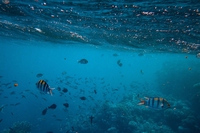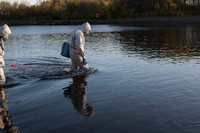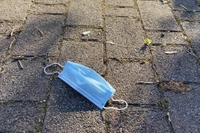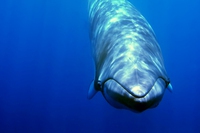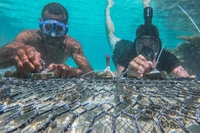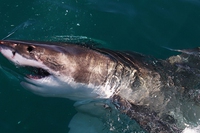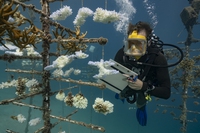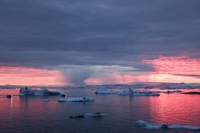
Total loss of Arctic summer sea ice will happen at least once before 2050
COP27 started in the wake of a remarkable revelation: Arctic summer sea ice will melt completely for the first time and at least once before 2050.
COP27 started in the wake of a remarkable revelation: Arctic summer sea ice will melt completely for the first time and at least once before 2050.
“None of the information from the government and TEPCO should be trusted unless it’s independently verified,” says Safecast’s Azby Brown. We discuss what lies behind Japan’s decision to release radioactive water into the ocean with the researcher and transparency advocate.
The United Nations has launched a major international alliance for ocean science, undertaking a mission close to all our hearts.
Toxic substances in Kamchatka’s waters have killed 95% of marine fauna and caused health problems for surfers. The causes, however, are still unknown.
Single-use face masks and gloves used as protection from the coronavirus have been found on the shores and in the waters of major European rivers.
If we don’t turn the tide on global warming, cities like Venice and Miami will disappear under rising sea levels.
For the first time in seventeen years, Iceland’s two main whaling companies won’t resume whale hunting. The announcement concerns this year’s season but could carry into the future.
The largest coral reef in the world is severely threatened by climate change, but researchers are developing strategies that could contribute to saving the Great Barrier Reef.
Great white shark numbers in the Mediterranean Sea have declined rapidly, a new study highlights. The predator’s disappearance would have a significant impact on the entire ecosystem.
30 per cent of the planet needs to be protected to stop precipitous species decline. The UN has set out its aims for the the COP15 on biodiversity scheduled for Kunming, China in October.

